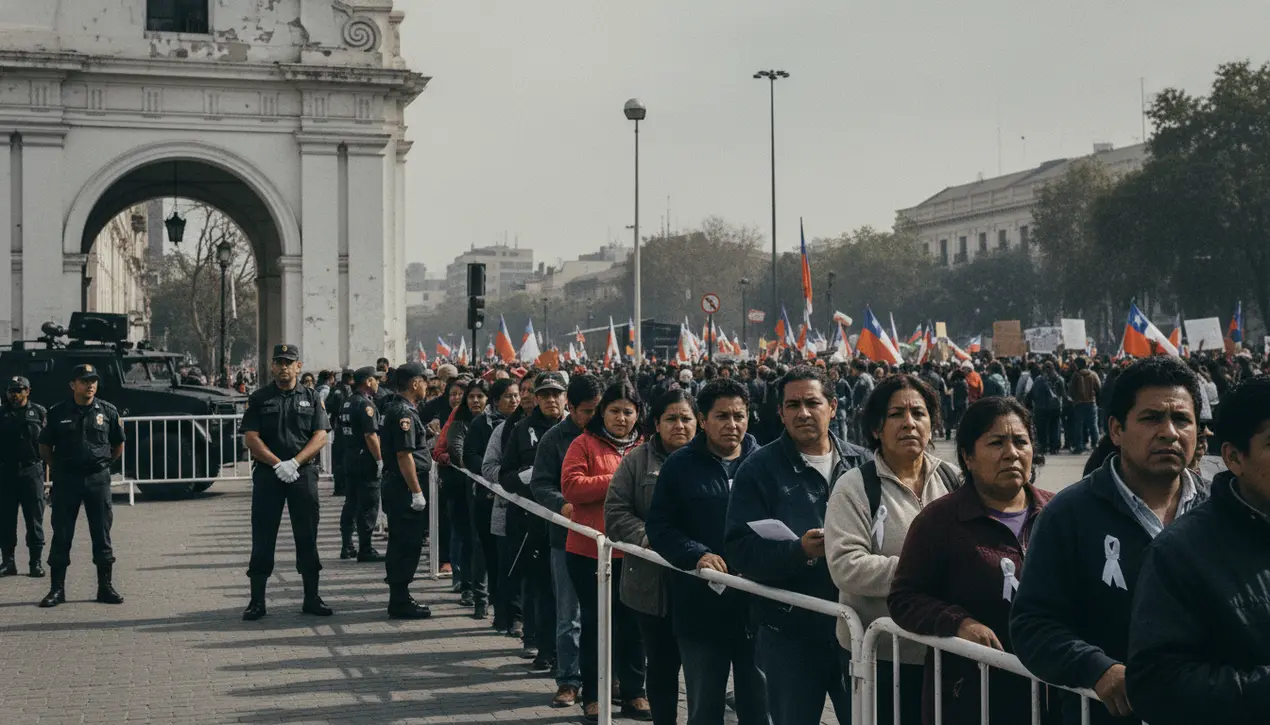
PoliticselectionsPresidential Elections
Chile's Tense Election Focuses on Security and Migration.
RO
Robert Hayes
3 hours ago7 min read3 comments
This Sunday, Chile stands at a precipice, a nation whose long-celebrated political stability is now threatened by the very forces of polarization and fear that have reshaped democracies across the globe. The election, framed by a stark choice between ideological extremes, is less a conventional political contest and more a fundamental referendum on the nation's future character, with security and migration serving as the potent, intertwined battle cries.The rhetoric has hardened considerably, echoing a global trend where complex socio-economic challenges are distilled into simple, potent narratives of 'us versus them,' a tactic with historical precedents from the populist surges in Europe to the divisive campaigns that have periodically gripped the United States. For decades, Chile was hailed as a Latin American success story, a bastion of economic growth and orderly transitions of power, but beneath that surface, simmering discontent over inequality and a perceived detachment of the political elite has created fertile ground for more radical alternatives.The palpable fear of organized crime, once a distant concern for many Chileans, has been amplified by sensationalist media coverage and leveraged by candidates who promise iron-fisted solutions, drawing parallels to the 'mano dura' policies implemented elsewhere in the region with mixed, often tragic, consequences for human rights and social cohesion. Simultaneously, the issue of migration, particularly from Venezuela and Haiti, has been weaponized, transforming a humanitarian and administrative challenge into a central pillar of a politics of resentment.This is not merely a domestic squabble; the outcome will send ripples across a continent watching to see whether a centrist, institutional path remains viable or if the allure of authoritarian-tinged populism proves stronger. Analysts note that the campaigns have strategically bypassed nuanced policy debates in favor of cultivating a climate of existential threat, a playbook familiar to students of political history, where fear is a more potent mobilizer than hope.The candidates, one from the hard left promising a radical overhaul of the neoliberal model and another from the hard right vowing to restore order through uncompromising force, represent a collapse of the middle ground that defined the post-Pinochet era. The Chilean electorate, once known for its pragmatic voting patterns, now finds itself navigating a landscape of heightened emotion and deep-seated anxiety about personal safety and national identity.The polls, notoriously volatile in such polarized environments, suggest a race that is too close to call, setting the stage for a result that could either deepen the current crisis or offer a fragile mandate for one vision of Chile's next chapter. The international community, from neighboring Peru and Colombia to trade partners in North America and Asia, watches with vested interest, aware that Chile's political direction will influence regional stability, investment climates, and the global balance between democratic norms and illiberal impulses. Ultimately, this election is a test of Chile's institutional resilience—can its democratic foundations withstand the tremors of fear and division, or will it succumb to the same centrifugal forces that have fractured other societies? The answer will be written not just in the ballot boxes this Sunday, but in the difficult days of governance and national reconciliation that follow.
#featured
#Chile
#election
#security
#migration
#polarization
#organized crime
#political direction
Stay Informed. Act Smarter.
Get weekly highlights, major headlines, and expert insights — then put your knowledge to work in our live prediction markets.
Related News
Comments
Loading comments...
© 2025 Outpoll Service LTD. All rights reserved.